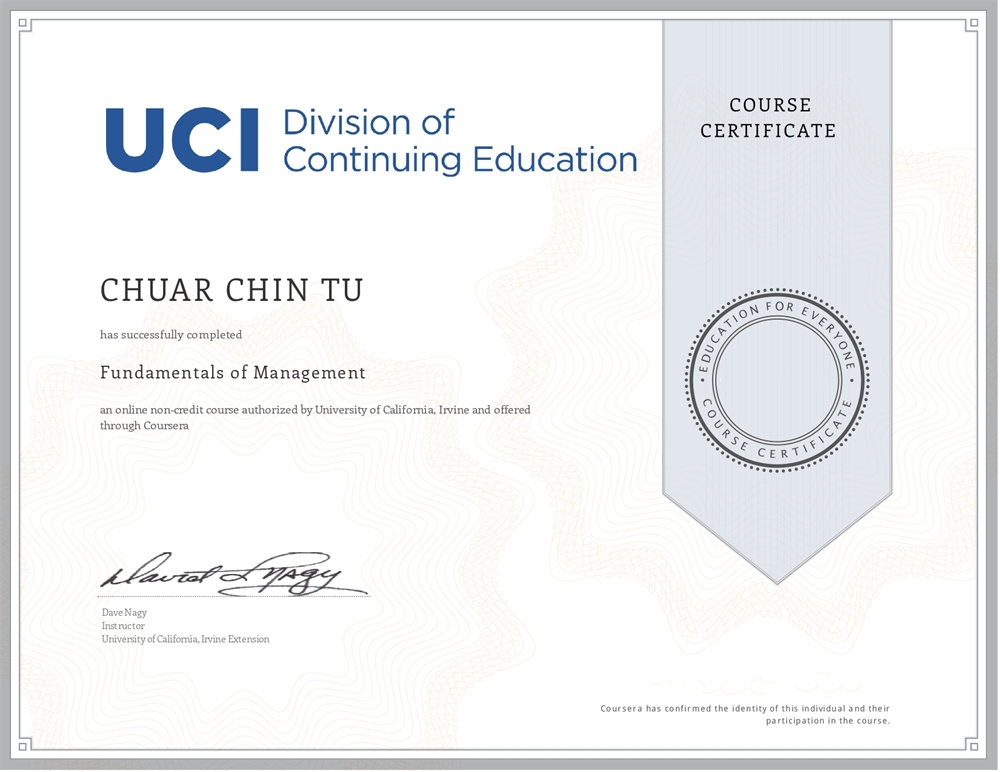Eric Chuar has completed the EFundamentals of Management for Personal & Professional Productivity and received a certificate from University of California, Irvine.
SCHOOL:
University of California, Irvine
GRADUATED:
2017
DURATION:
6 Months

Management Skills Gained
Explain the difference between managers and leaders
Use the SMART goal-setting technique
Describe the five functions of management
Understand the power of building a network
Course Perspective
Just wrapped up the Fundamentals of Management course, and let me tell you, it’s not all pie charts and PowerPoints. I’ve been in the digital marketing and programming game for a while, but managing? That’s a whole different ball game.
The course started with the basics, like explaining the difference between managers and leaders. Sure, I’ve heard people throw around these terms, but now I get it. Managers are the ones who make sure the ship is sailing smoothly, while leaders are looking for new oceans to explore. Both are crucial, but they’re not the same thing.
Then we dived into the five functions of management. We’re talking planning, organizing, staffing, leading, and controlling. I was thinking, “Hey, I do some of this in my day job,” but seeing it laid out like that? That was a game-changer. It’s one thing to know how to run a campaign or write code, but another to understand how these management functions can help me be more efficient and effective in what I do.
And SMART goals? No, not just being a smart aleck, but setting goals that are Specific, Measurable, Achievable, Relevant, and Time-bound. I’ve set goals before, sure, but using the SMART framework makes them more than just a wish list. It turns them into a roadmap.
Oh, and networking isn’t just about swapping business cards. It’s about building relationships that can help you professionally and personally. The course made it clear that your network isn’t just what you know but who you know.
I’ve been around in Malaysia and Singapore and have seen how understanding people—their needs, their motivations—can make or break a project. This course just reinforced that, especially when it comes to management. I’ve got a family, a main hustle, and even some side gigs like badminton coaching and red wine appreciation. Time’s not something I can waste, and neither is knowledge. That’s why I’m all for sharing what I know with others, whether it’s coding, marketing, or now, even management.
So yeah, it wasn’t just another course to add to my LinkedIn profile. It was a learning experience that I can directly apply to my daily life, and one that I’m eager to share. Because at the end of the day, what’s the point of learning if you’re not going to use it to make things a bit better, right?
